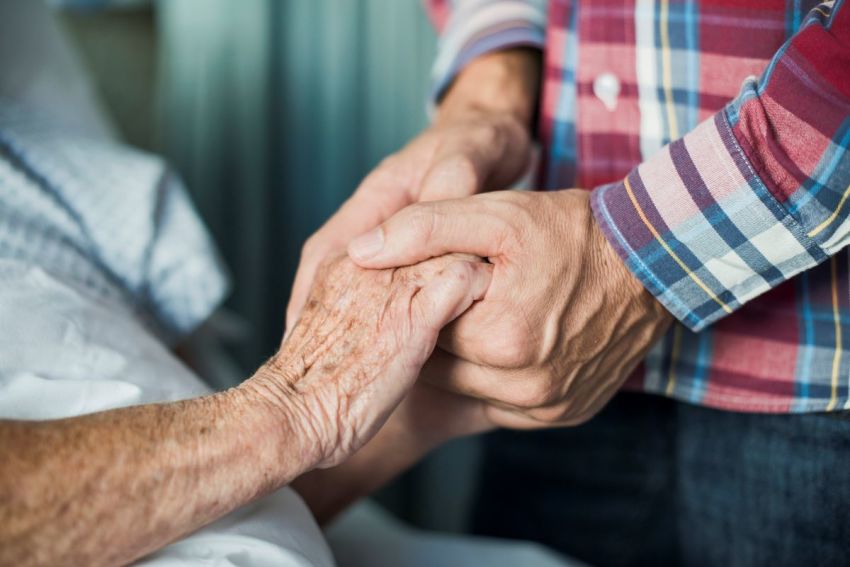Doctor who helped healthy woman die with sick husband acquitted

A Swiss doctor who helped an elderly woman who did not want to live without her sick husband hasten her death has been acquitted after a five-year legal battle.
Pierre Beck, the former vice president of Exit International, an assisted suicide nonprofit group, prescribed barbiturate pentobarbital to the 86-year-old woman in April 2017. The Geneva Court of Justice acquitted the doctor last month after he was previously convicted on charges of assisting the healthy woman with hastening her death.
In a 23-page judgment reported by Radio Télévision Suisse, the Geneva court noted that Switzerland has "liberal regulations," highlighting that assisted suicide is only punishable if there is a "selfish motive."
Detailing the law on narcotics, the court concluded that the law "is not intended to regulate the conditions under which a doctor may prescribe pentobarbital, since this substance does not fall under any medical indication. In particular, it does not prohibit its prescription to people in good health, under penalty of criminal sanction."
"The mere fact of a physician prescribing pentobarbital to a person in good health, capable of discernment and wishing to die, does not constitute behavior punishable by the law on narcotics," the court continued.
However, the court ruled that a doctor who prescribes pentobarbital to a person in good health could still face civil or administrative liability and advised doctors to follow the Swiss Academy of Medical Sciences, which prohibits pentobarbital prescriptions for people in good health.
A doctor who disregards these rules, the court warned, "exposes himself to disciplinary sanctions which can prove to be very heavy."
The court's ruling may not be final, as prosecutors were given 30 days to appeal the verdict to the Federal Court.
"If I was again in front of a lady who has such intense suffering and she plans very concretely to commit suicide, I would help her again to allow her a gentle and safe death," Beck said, according to RTS.
Both the husband and wife at the center of the case ended their lives in April 2017 after Beck prescribed them pentobarbital. The Geneva Public Prosecutor's Office found the doctor guilty in December 2018 without a public trial of violating federal law by prescribing the drug to an elderly woman who was not sick.
In October 2019, a police court came to the same conclusion, and Beck was ordered to pay fines for breaching the laws on medicines and medical devices. The police court's decision was upheld in April 2020 by the criminal appeal and review chamber.
The Federal Court allowed the doctor's appeal in December 2021, referring the case to the Criminal Appeal and Review Chamber to examine whether the doctor could be retried under laws surrounding narcotics.
The legalization of assisted suicide is not unique to Switzerland, as it is legal in varying degrees in several other countries.
As The Christian Post reported, the Special Joint Committee on Canada's Medical Assistance in Dying presented a report before the House of Commons earlier this month, recommending that certain minors be made eligible for assisted suicide.
Canada legalized doctor-assisted suicide in 2016 but was limited to citizens or permanent residents at least 18 years old with "a serious and incurable disease, illness or disability" that included "enduring and intolerable suffering."
The country's parliament expanded the law to make people with non-physical disabilities eligible for MAID by March before the Canadian government announced in December that it was temporarily halting the expansion.
The report listed 23 recommendations, proposing that minors "deemed to have the requisite decision-making capacity upon assessment" should be eligible for the country's Medical Assistance in Dying Program (MAID). In addition, the report recommended MAID for minors whose deaths are "reasonably foreseeable."
According to recommendation 19, the report suggested: "That the Government of Canada establish a requirement that, where appropriate, the parents or guardians of a mature minor be consulted in the course of the assessment process for MAID, but that the will of a minor who is found to have the requisite decision-making capacity ultimately take priority."
The majority of the committee's members called for the government to hold formal consultations with Canadians under 18 within the next five years and to provide funding for research into the issue of minors being eligible for MAID.
Samantha Kamman is a reporter for The Christian Post. She can be reached at: samantha.kamman@christianpost.com. Follower her on Twitter: @Samantha_Kamman



























